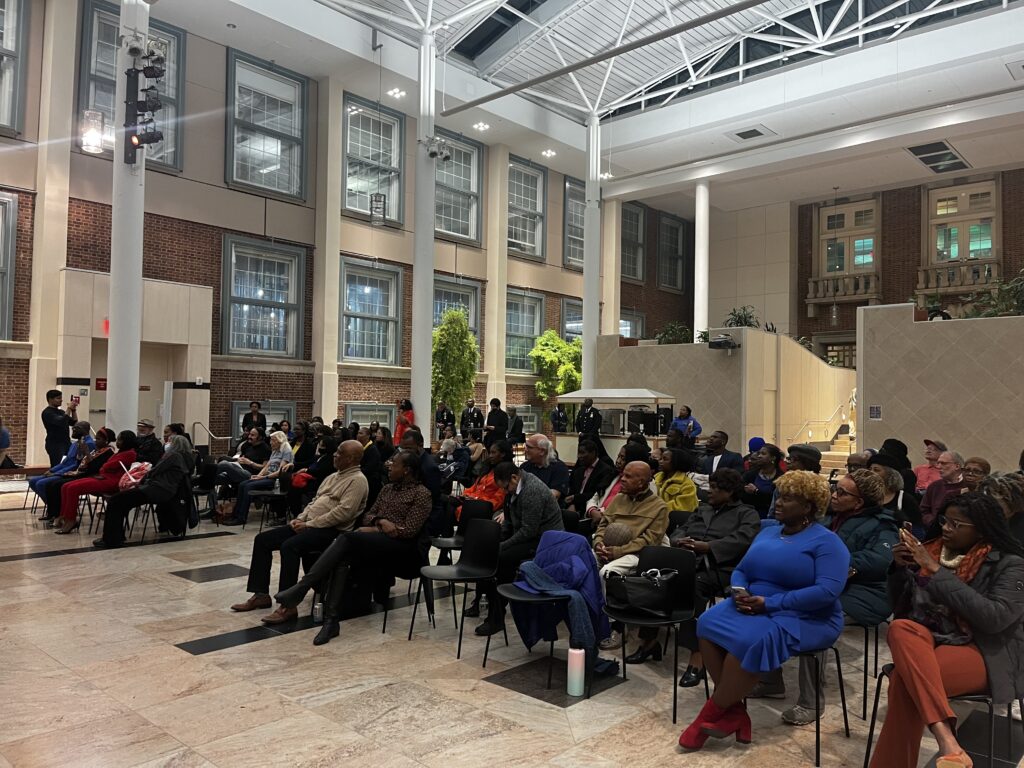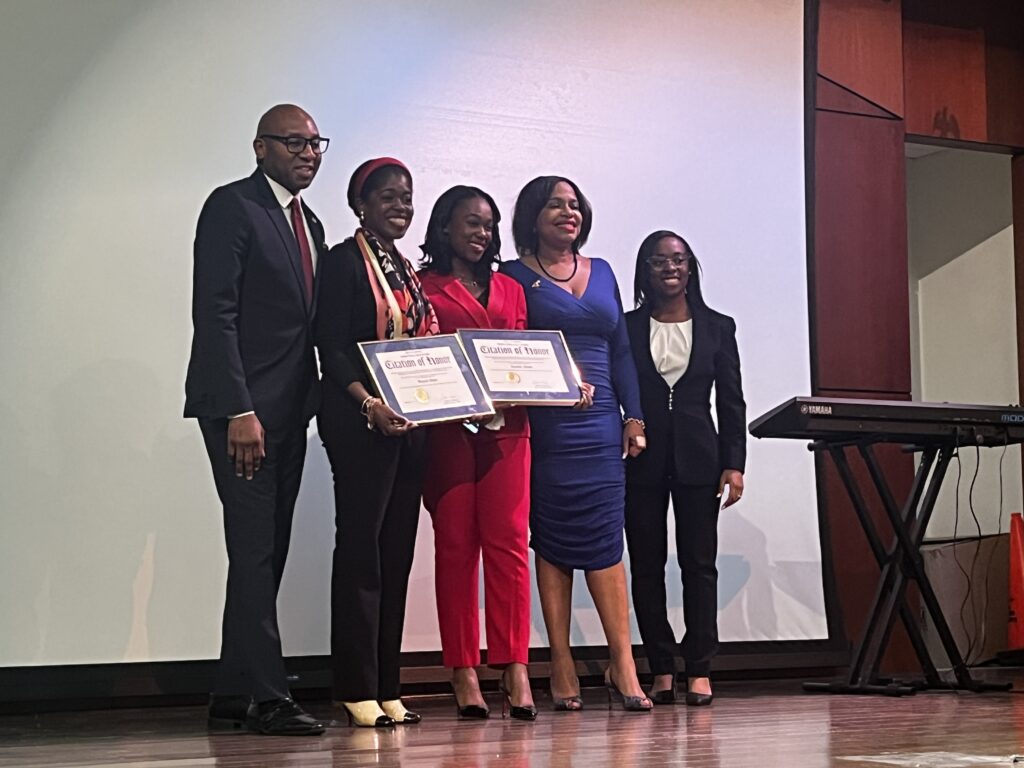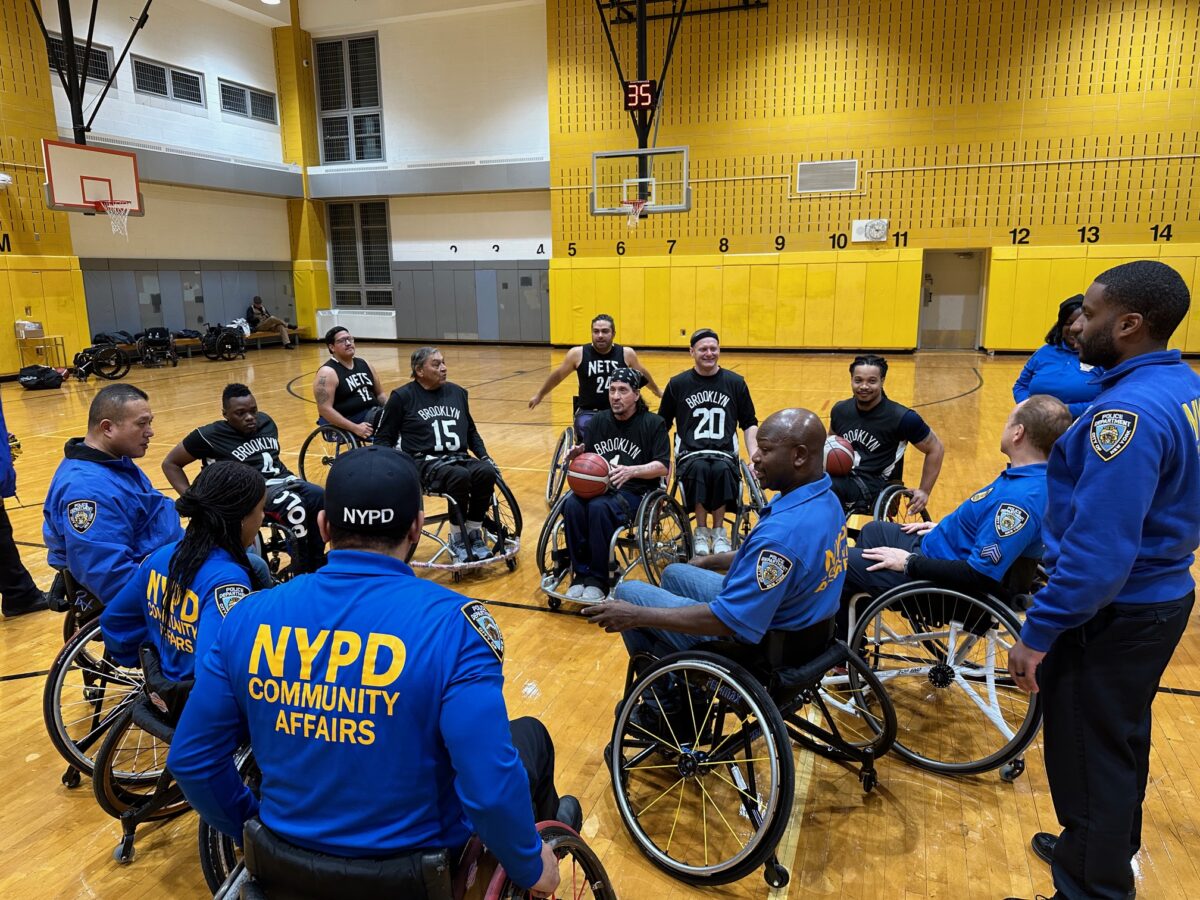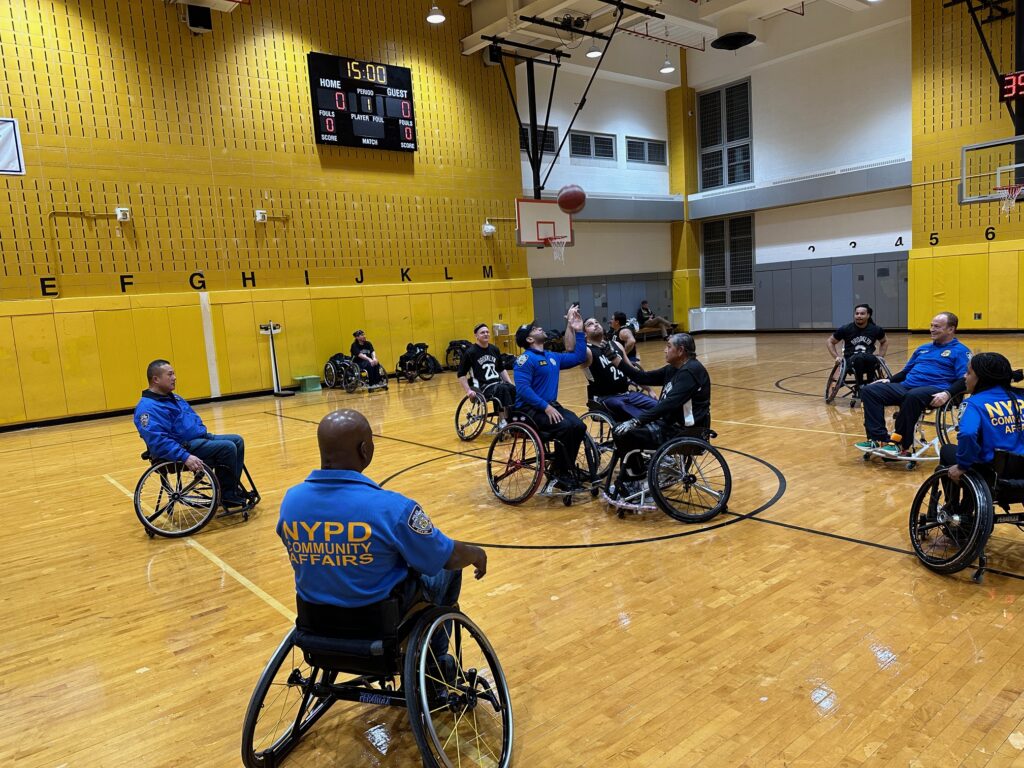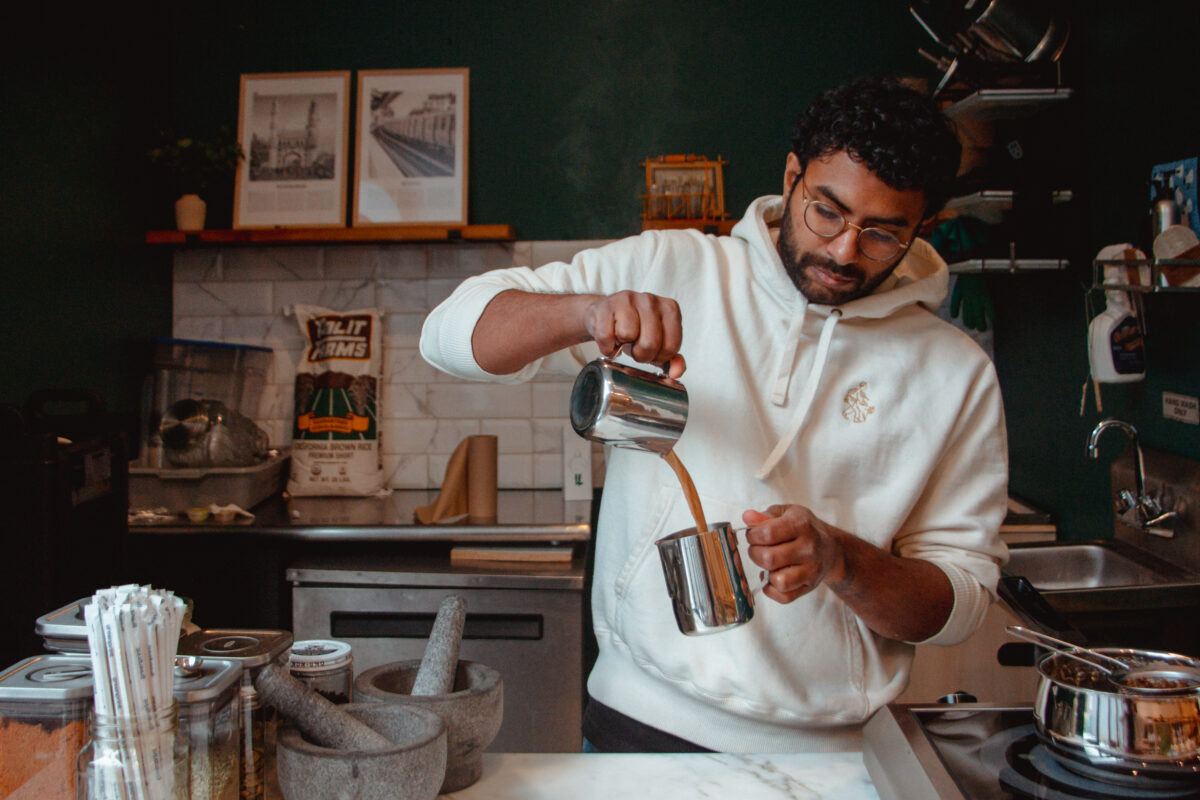Samanvay Kasarala’s pop-up chai cafe is rooted in love for his culture, for his family, and for his partner Kayli
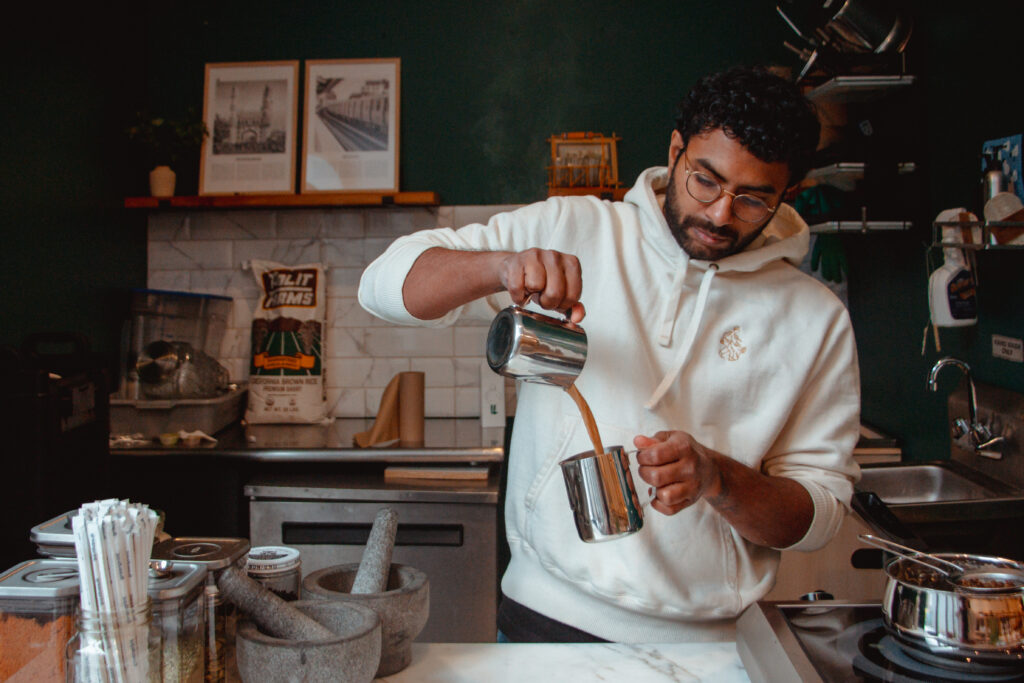
Sam preparing chai. Credit: Daleelah Saleh
by Daleelah Saleh | news@queensledger.com
If you live in Astoria or Brooklyn, you might be familiar with the zero-waste store Earth & Me, which sells home goods and wellness products with a focus on making sustainability fun and accessible. You might be surprised to discover, however, that on the weekends, another small business comes to life in the back corner of this Steinway staple: Chaiwalla.
Chaiwalla, which means tea seller, is the brainchild and passion project of Samanvay Kasarala – the husband of Kayli Kunkel, the owner of Earth & Me.
I entered the store for the first time on a Saturday afternoon and was greeted by the strong aroma of cardamom. I made my way past clothing racks, vintage goods, body care, and home products to find a small countertop with an assortment of spices and two portable stovetops. The corner is painted dark green with small but meaningful decor: framed images of Hyderabad, where Samanvay is from, and Queens, where he lives now.
Samanvay greeted me warmly, offering to make me a cup of chai. He carefully measured and crushed the spices in front of me: ginger, cardamom, cloves, black pepper, sugar, and cinnamon. He then combined it with an assam tea powder, boiling the mixture with oat milk. We chatted as he made the chai and it felt more like I was in a friend’s kitchen than a store.
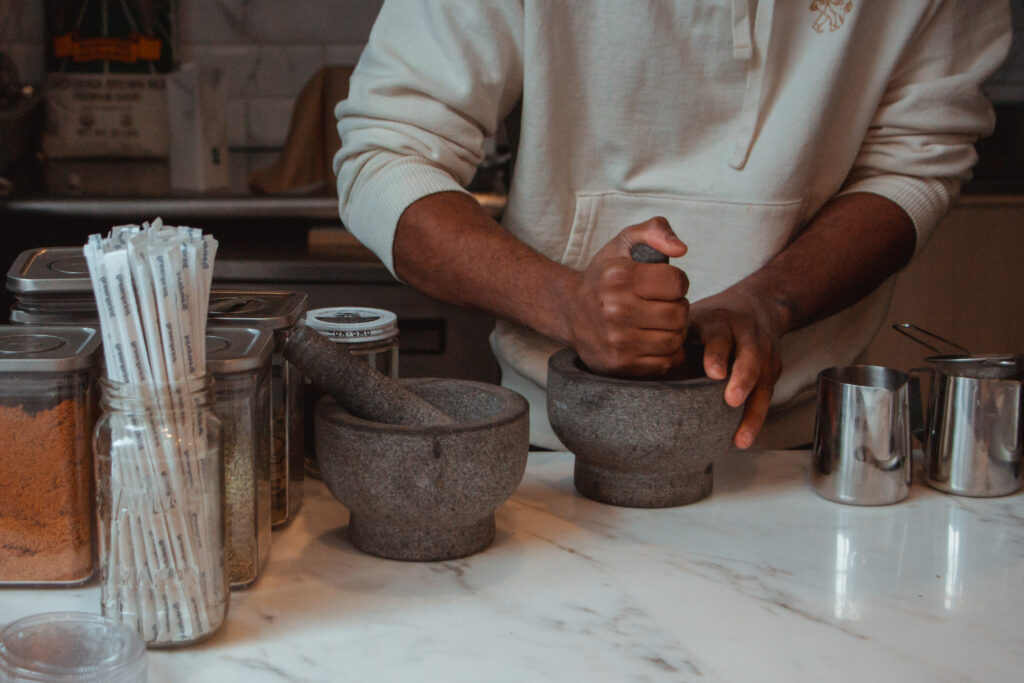
Sam preparing chai. Credit: Daleelah Saleh
Samanvay grew up in a family that loved chai– to the point of drinking it up to five times a day– and he inherited that appreciation for the drink. Kayli noticed him making it all the time, and last summer, suggested that he start selling chai for other people to enjoy as well.
He was immediately interested: “I liked the idea of showing people what chai actually tastes like. I was tired of hearing that chai doesn’t taste good from people who have only had it at Starbucks.”
Samanvay initially toyed with the idea of crafting chai in a ready-to-drink format that would be commercially available “so people could enjoy chai everywhere.” But it ended up making more sense from an operational and financial standpoint to do a popup space in the back corner of Earth & Me which happened to be empty.
“It’s definitely a symbiotic relationship,” Samanvay said, noting that people will come to Earth & Me to refill their home goods, then wander over to Samanvay’s counter to watch him make a cup of chai.
According to Samanvay, “a big part of the appeal is that people watch me make the chai in front of them.”
He asserted that chai, like many other aspects of Indian culture and cuisine, is consumed in the West in a way that is often completely divorced from its actual roots, often relying on processed or concentrated ingredients and prepared in a kitchen away from the customer.
“A large part of [the chai experience] is slowing down a bit,” Samanvay said. “When people come here, I set the tone that it’ll take five minutes. They can talk with me or walk around the store. Most times, people get entranced watching me do everything and are curious to learn more. So this is a medium for me to educate them on the origins of chai.”
After handing over the cup to a customer, Samanvay will ask them how it tastes.
“They’ll usually give a pretty positive answer, which is always exciting.”
Samanvay enjoys interacting with everyone who comes by the counter, but said that it’s extra satisfying when other Indians come by and are impressed. “It’s like an unofficial badge of acceptance. The best thing is when they say it tastes like home.”
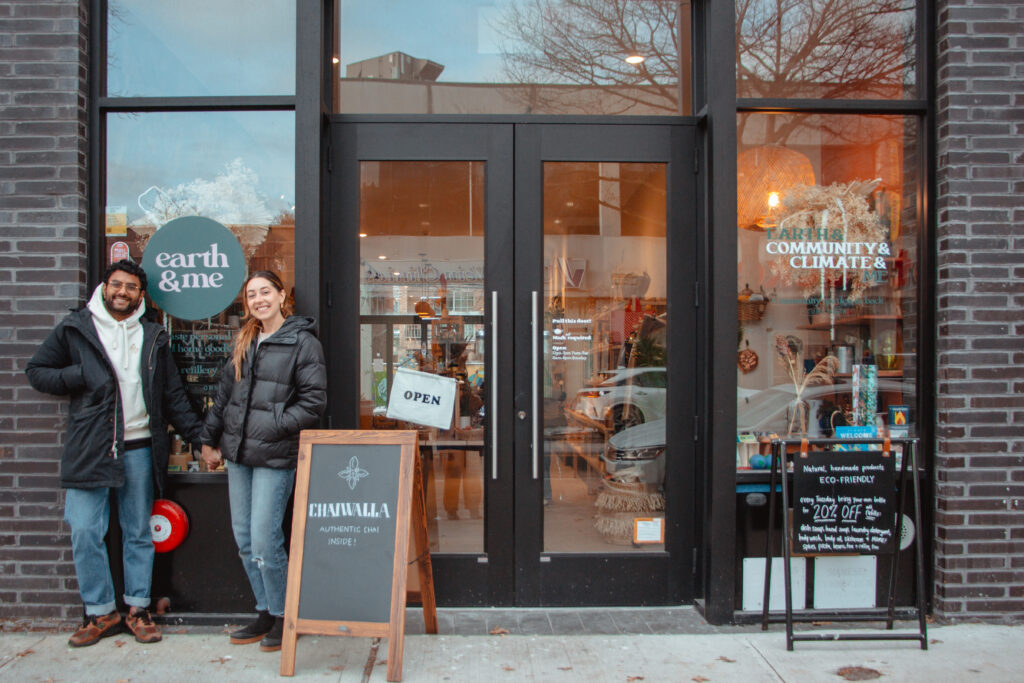
Sam and Kayli outside their stores. Credit: Daleelah Saleh
Kayci Johnson, who excitedly revealed that she was Samanvay’s first-ever customer last summer, said Chaiwalla has become a personal favorite.
“As a chai-lover, I’m always excited to try new chai. From the moment I first came by, I felt the authenticity and the genuineness behind Chaiwalla,” Johnson said. “Sam’s chai was so heartwarming and delicious, and I couldn’t wait to come back. I work on the weekends and I always have Chaiwalla in the back of my mind, hoping I can make it in for a cup.”
In regards to what makes Samanvay’s chai stand out, Johnson noted, “I feel like it’s complex but approachable. I can taste all the flavors but I’m not overwhelmed. It definitely feels like a family recipe: someone really thought this out.”
Before officially opening, Samanvay went through a lot of trial and error perfecting his family’s chai recipe. Although the ingredients are essentially the same, Samanvay wanted to make sure he could consistently get it right within a similar timing and measurement framework.
“I did a soft-launch in July, then fully opened in August with more consistent hours.” Samanvay was pleasantly surprised by how quickly Chaiwalla was able to take off – “it’s been awesome to see that so many people are liking it.”
It was a risk – as a product designer, opening a cafe was a total pivot from his previous work experiences.
“My grandfather took massive risks that his education would take him far and give him opportunities at a time when that wasn’t certain. In one generation, he went from living in a hut and studying under streetlights to seeing the US Capitol. He made it and it’s because of him that the rest of my family has been able to have opportunities for success,” Samanvay said. “I wanted to honor his struggles by taking a risk of my own: I decided to open this cafe and see where it goes.”
Samanvay felt reassured and inspired by the fact that “there was a resurgence of authentic restaurants like Unapologetic Foods being intentional about not toning down their spices or curating their menu for a western palate.” They received recognition for it in the form of a Michelin Star for their restaurant Semma – the first Indian restaurant to accomplish this. “It became clear that there was an appetite for this, which was a big shift in what I understood of non-western cuisines being appreciated in the US.”
So far, Samanvay has found a good balance between running Chaiwalla and being a product designer full-time.
“I don’t pay myself for this; I do it for fun. I’ve put all the business things on autopilot, so I don’t have to spend a lot of time on after-hours.”
When asked if he got tired working every day of the week, Samanvay said, “Not at all. It’s kind of relaxing making chai and talking to people — and it’s nice to not have to think about KPIs on the weekends.”
One of Samanvay’s most meaningful experiences in the past few months was catering the Keffiyeh Cup in Astoria Park: an all-day soccer tournament fundraiser organized by Assemblymember Zohran Mamdani for UNRWA, one of the leading providers of emergency relief for Palestinians in Gaza.
“[The cup] was the most people I’ve served at once. It was so cool to see people recommending my chai to their friends in real time, and we ended up selling out before the event ended.” On top of that, Samanvay appreciated that it was for a good cause.
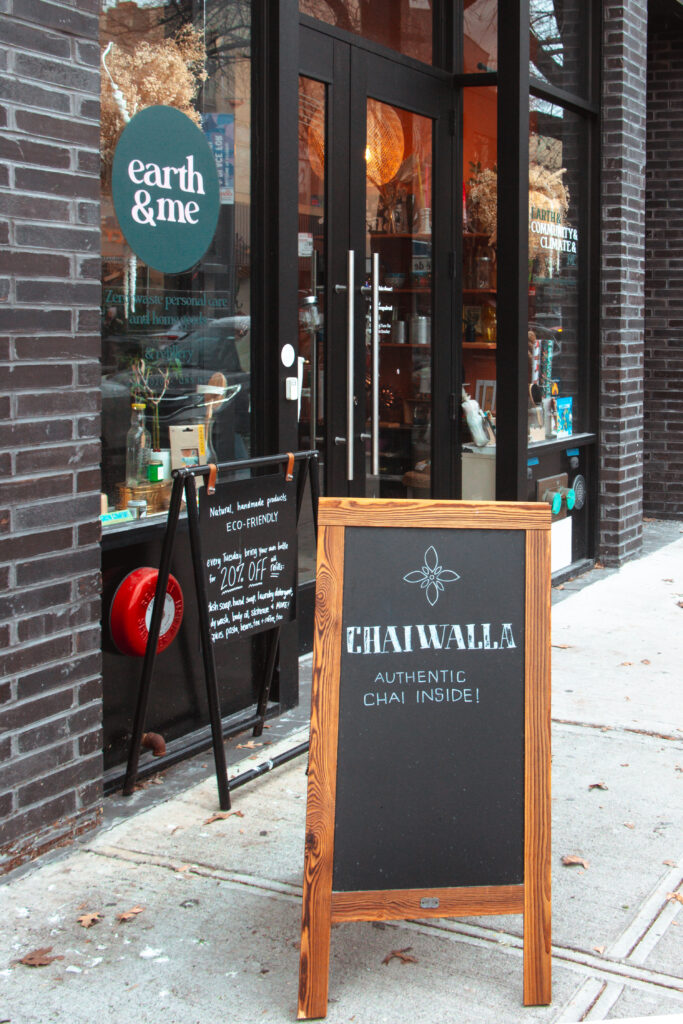
Chaiwalla sign. Credit: Daleelah Saleh
“There are so many parallels between India and Palestine, with both groups of people struggling against colonial powers trying to erase whatever it is culturally that they have,” Samanvay said. “If you can acknowledge that India has a right to freedom then Palestine has that right too. Any acknowledgement of any colonization anywhere needs to come with broader acknowledgement of its effects anywhere— they’re not separate from one another.”
In addition to the Keffiyeh Cup, Samanvay has enjoyed working with other local businesses like Sweet Tones NYC, which he partnered with to serve apple cider and dark chocolate cake at an event in the fall.
Looking ahead, he hopes to expand Chaiwalla into its own storefront, with a full menu that includes Indian breakfast foods. In the meanwhile, it’s open between 11am and 4pm on Saturdays and Sundays and located at 30-38 Steinway Street. You can follow Samanvay at @chaiwalla.nyc for updates. If you love chai — or want to try a homemade cup of it — this store is a must-visit.
